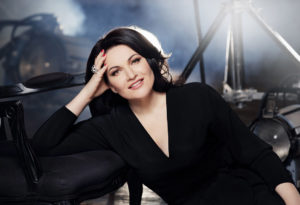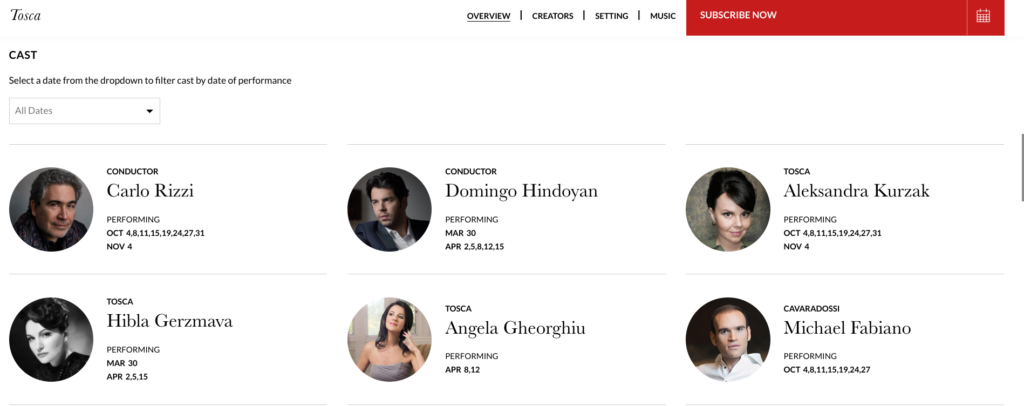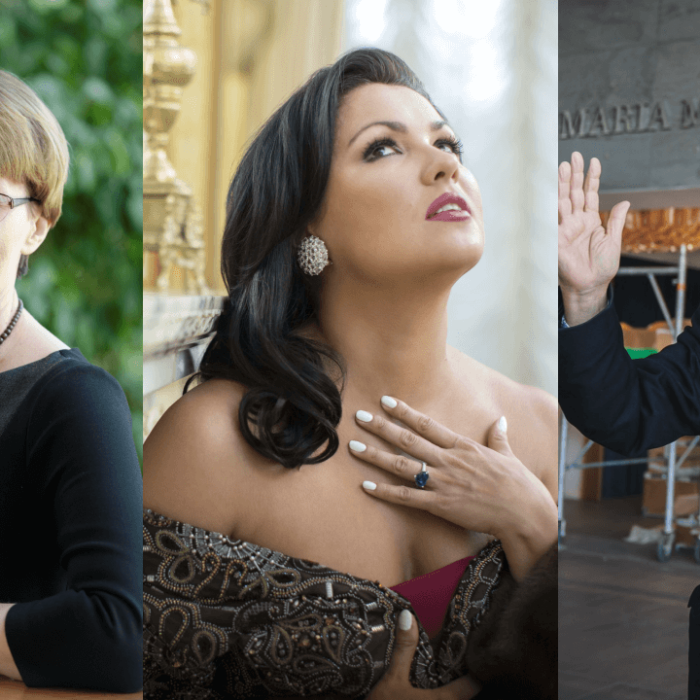
Editorial: The Curious Case of Hibla Gerzmava
Despite Ties to Putin, Soprano Still Invited by Companies Who Have Expressed Opposition to Russian Ruler
By Francisco SalazarIn 2017, soprano Hibla Gerzmava was on tour throughout the United States performing at important halls alongside Vladimir Spivakov.
The soprano had garnered an international following and had been performing at the great opera houses in the world, including the Metropolitan Opera, where she had made her debut in 2010 and had already been featured in HD performances.
However, when she arrived in Boston on June 2, 2017, the soprano was hit with protests at Emerson College. Why? Gerzmava was one of the 511 artists along with Valery Gergiev, Elena Obraztsova Vladimir Spivakov, and Yuri Bashmet who had signed a letter, now known as The Letter, in support of the annexation of Crimea in 2014.
That letter stated, “In the days when the fate of Crimea and our countrymen is being decided, Russia’s cultural figures cannot remain indifferent, cold-hearted observers. Our shared history and shared roots, our culture and its spiritual sources, our fundamental values and language have always united us. We want the commonality of our peoples and our cultures to have a strong future. This is why we firmly declare our support of the position of the President of the Russian Federation in regards to Ukraine and Crimea.”
That invasion saw the Russian federation responsible for many human rights abuses, including torture, arbitrary detention, forced disappearances, and instances of discrimination, among many other atrocities.
Among the protesters were Arts Against Aggression which held up signs that said, “Why do you promote Putin’s favorite propaganda tools Spivakov & Gerzmava?”
There was also an Emerson alumna Margarita Davydova, a citizen of Ukraine, who happened to be a former resident of the annexed Crimea, who worked for the charity fund “Save Ukraine.” In response to the concert, the charity’s leader noted, “very much disturbed by the undignified act of her alma mater and its indifference towards injustice, political crimes, and pain of millions of people.”
The tour continued with organized protests around the country including in San Francisco, but it went without much fanfare.
In 2019 the soprano also faced protests before her recital in Carnegie Hall over the same matter. But like in 2017, those protests went without much fanfare and most reviews focused on the artistic value.
Since then, the soprano’s connection to Putin’s government continued to be evident throughout the years. In 2019 she appeared embracing Putin for Victory Day and in June 2021, when she was awarded the State Prize of the Russian Federation, she posted three pictures next to the Russian President. On Oct. 7, 2021, she congratulated Putin on his birthday, and on Feb. 7, 2021 attended a ceremony on the 300th anniversary of the Prosecutor’s Office of the Russian Federation for which she had previously given concerts for. Furthermore, she was invited to sing at the closing night of the Olympics in Sochi, the closing night concert of the 2018 FIFA World Cup, and even held a birthday celebration at the Kremlin for her 50th birthday.
Jump to 2022 when the president of the Russian Federation invaded Ukraine and many Russian artists were expelled from western theaters for their prior support of Putin and yet, Gerzmava seems to remain at most institutions. Chief among the vetoed artists are Valery Gergiev (whose ties to Putin are well-known) and, as it pertains to the opera world, soprano Anna Netrebko, a dear friend of Gerzmava, who was caught in a media circus during which she made not one but three statements against the war.
Gerzamava, who has performed this season in Copenhagen and in Russia, remains scheduled for the Metropolitan Opera and the Gran Teatre del Liceu’s 2022-23 seasons. Not all seasons have been announced but these two companies have been very clear regarding their stances on Russian artists tied to Putin.
Met Opera General Manager Peter Gelb announced on Feb. 27 that the company was breaking ties with all Putin supported institutions and artists noting, “While we believe strongly in the warm friendship and cultural exchange that has long existed between the artists and the artistic institutions of Russia and the United States, we can no longer engage with artists or institutions that support Putin or are supported by him. Not until the invasion and killing has been stopped, order has been restored and restitutions have been made.”
That saw the company publicly break ties with Netrebko and the Bolshoi Theatre, a company with which the Met had three new productions scheduled for future seasons.
After several institutions reversed course on canceling Russian artists as a whole, Gelb followed suit, stating, “Most Russian artists, including other singers who perform at the Met, have not taken any public political position. Their private positions are theirs to keep private. I have no problem with that.”
As for the Gran Teatre del Liceu and surrounding Catalan companies, the organization’s leadership condemned the war and reaffirmed its “commitment to peace.” The company had originally planned to perform its 175th anniversary with Netrebko as the headliner, but ultimately had the soprano withdraw from the event and moved forward with a different slate of singers, none of them Russian.
It is obviously hard to see where Russian artists stand as they may face threats to their lives and families and are simply uncomfortable speaking out. And I must reiterate that, especially given this circumstance, no artist should be canceled for not speaking their mind. And many companies like La Monnaie and Wiener Staatsoper have made it clear that they will not cancel or fire Russian artists as a result of the war.
However, in a world where organizations and their leaders have laid out the rules to the game (which did include demanding artists speak out against the war and denounce Putin explicitly) and have followed through on consequences in certain cases, it is puzzling to see Gerzmava, who has been forward and open about her relationship with Putin to this day (not to mention the fact that she has been actively protested against in the past), still booked for major contracts with companies that were quick to dump other artists and companies.
Since the beginning of the war, Gerzmava has made no statement regarding the crisis to her 163,000 Instagram followers nor has she lost her relationship with Zemsky/Green Artist Management. Instead, she has performed at the Mariinsky Theatre in several productions alongside Gergiev. She has also appeared at the Zaradaye Hall and the Stanislavsky and Nemirovich-Danchenko Moscow Music Theatre where she remains an ensemble member; both companies have been vocal in supporting Pro-Putin artists. She also won a grant for a competition named after her, among other recognitions in Russia.
OperaWire has reached out to the Met and the Gran Teatre del Liceu for comment on Gerzmava’s forthcoming engagements with them, but has yet to receive a response.
To be clear, Gerzmava is not an island as a rare case here. There are other major Putin-tied artists appearing at Putin-supported organizations who are still working for organizations that have previously stated their desire to cut ties with such organizations and artists. But none are more obvious than Gerzmava.
Ultimately, the soprano may not perform at the Met nor the Liceu next season but the fact that she remains on these rosters as of this writing remains a perplexing and curious case.
Categories
Editorials

